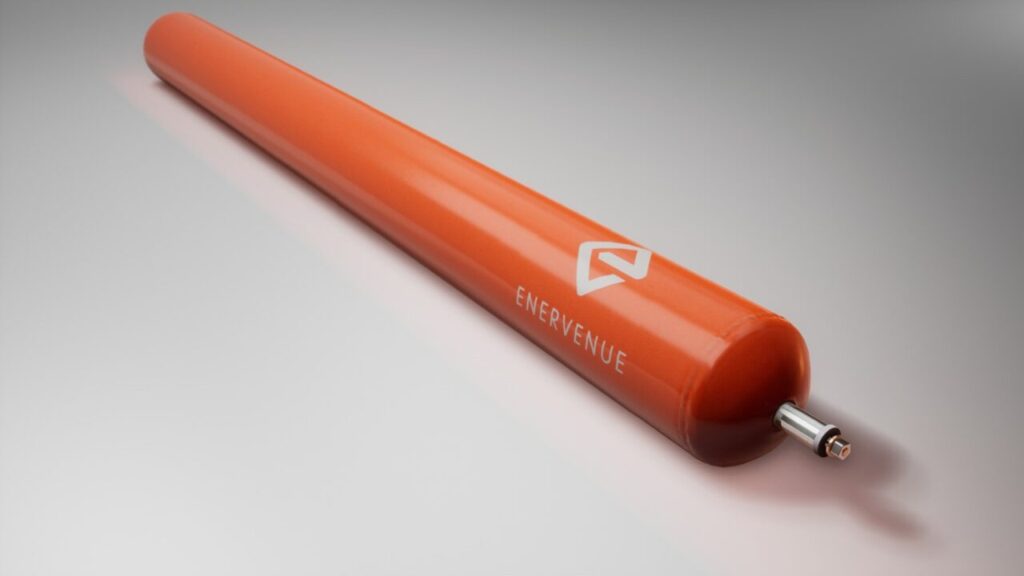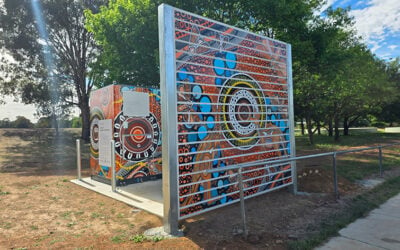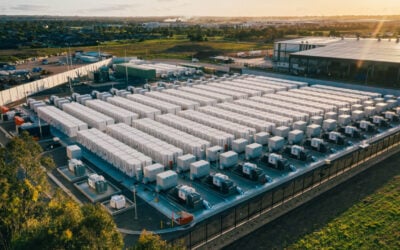
RWE has purchased EnerVenue metal-hydrogen Energy Storage Vessels (ESVs) for a renewable energy storage pilot project in the US.
The pilot project was announced 3 December and will be conducted at the US arm of German utility RWE’s Milwaukee-area testing facility, which is currently cycling the ESVs to examine their performance characteristics.
The goals for the pilot are to validate ESV cycling flexibility, charge and discharge characteristics, duration, temperature performance, and efficiency validation. Based on the data collected, RWE could use the technology for future applications.
Energy-Storage.news asked RWE for comment regarding any associated costs with the pilot programme but did not receive word on the matter ahead of publication.
Try Premium for just $1
- Full premium access for the first month at only $1
- Converts to an annual rate after 30 days unless cancelled
- Cancel anytime during the trial period
Premium Benefits
- Expert industry analysis and interviews
- Digital access to PV Tech Power journal
- Exclusive event discounts
Or get the full Premium subscription right away
Or continue reading this article for free
EnerVenue’s ESVs use nickel-hydrogen technology originally developed and used by NASA in the 1980s. The company uses a revised, cheaper version of the technology developed by Standford professor Yi Cui in 2017.
EnerVenue claims that their ESVs can exceed a 30,000 cycle lifetime and can cycle up to three times a day without rest. This would mean the technology has approximately 4-6 times greater throughput than typical lithium-ion (Li-ion) batteries.
In a 2022 interview with Energy-Storage.news, EnerVenue CEO Jorg Heineman said of the company’s batteries, “What we offer is a battery that behaves from a power characteristic standpoint, like lithium-ion. However, it has an unlimited lifespan, in practical terms, 30,000 charge/discharge cycles. It’s a battery that will outlast the solar panels, if it’s connected in a hybrid solar installation and it’ll last well beyond the initial offtake period of a particular project.”
In November of this year, EnerVenue vacated a new manufacturing plant in Shelby County, Kentucky, subsequently bought and now occupied by Canadian Solar. A spokesperson for the company said of the decision, “EnerVenue made the decision to accelerate the development of a fourth generation of its Energy Storage Vessel, rather than bring a prior version to scale.”
According to a spokesperson for the pilot deal, RWE is piloting the company’s second-generation ESV, which they said will be “packaged in a 1,000V enclosure.”
The spokesperson added, “The company leapfrogged its gen-3 model and is currently proving out the manufacturability of its fourth-generation ESV, which is the version the company expects to eventually bring to scale. Both models feature similar performance characteristics relative to cycling, efficiency, temperature performance, and fire safety.”
US utility Dominion Energy is also set to begin a pilot programme with EnerVenue in 2027 in Virginia, using the ESVs as a teaching tool for the College of Engineering and Technology at Virginia State University (VSU).
In May of 2023, EnerVenue’s metal-hydrogen battery obtained UL1973 certification and completed UL9540A tests.
The UL1973 certification test is a safety standard for batteries used in stationary applications, light electric rail (LER), and vehicle auxiliary power. The standard includes requirements for construction and evaluates fire resistance, mechanical design, thermal management, and electrical safety.
The UL9540A certification evaluates the potential fire risk of thermal runaway in battery systems. If thermal runaway can be achieved with the system, the risks are tested at increasing intervals.
The company said no flames were observed during thermal runaway, claiming the vessels do not require additional protection.
Earlier this year, EnerVenue raised US$308 million in venture capital, placing it in research firm Mercom Capital’s top five VC deals for H1 2024.
In October, RWE submitted a Conditional Use Permit (CUP) application to construct a 200MW BESS using Tesla 2XL Megapacks in Park County, Colorado.
In the same month, the German-based energy company also broke ground on three BESS projects in Texas, totalling 900MWh.





